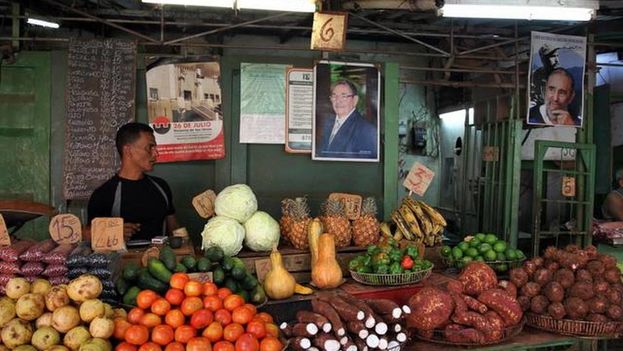
![]() 14ymedio, Miami, 1 August 2017 – The work performed by the self-employed in the island already generates 17.8% of the gross income of the Cuban economy despite difficulties such as high taxes and shortages of raw materials, according to the latest report from The Havana Consulting Group (THCG), which considers this sector as “a necessary and essential force in the development of the country.”
14ymedio, Miami, 1 August 2017 – The work performed by the self-employed in the island already generates 17.8% of the gross income of the Cuban economy despite difficulties such as high taxes and shortages of raw materials, according to the latest report from The Havana Consulting Group (THCG), which considers this sector as “a necessary and essential force in the development of the country.”
The study by THCG contrasts with the measure announced Tuesday by the government, which, according to a note in the Communist Party newspaper Granma, intends to suspend the granting of several forms of self-employment licenses with the aim of curbing “illegality and disorder.”
The analysis published by the independent consulting firm based in Florida, states that the 535,000 people who work legally in the private sector (plus another 500,000 who do so illegally) on average receive, as a minimum, income ten times higher than what is received in the state sector.
“This change that is taking shape in Cuban society is irrefutable proof that, if the government were to decide to make a real economic opening and release the country’s productive forces, with a reform like Viet Nam’s or China’s, in two to three years Cuba could take out millions of Cubans out of poverty. In a short time it would be another country,” says THCG.
“This significant difference in earnings has led to the creation of new market segments with different levels of purchasing power, which have consumption patterns different from the rest of the population,” explains the author of the article, Emilio Morales.
Nevertheless, THCG argues that, despite the boom in private activities, “This significant difference in wages has given rise to the creation of new market segments with different levels of purchasing power, who have patterns of consumption different from the rest of the population.”
The report was drafted ahead of the authorities’ decision to limit licensing, affecting nearly thirty occupations such as home rentals and paladares (private restaurants) and cafés. The decrease in the issuance of these licenses may result in still greater increase of the state sector in the economy of the island.
“In the period 2010-2016 there has been a boom in the Cuban private sector. Entrepreneurs have developed very successful and profitable business models,” the study says.
According to THCG, the state agency GAESA, which belongs to the Armed Forces, controls strategic sectors such as 85% of the retail market, 40% of the hotel sector within the Cuban tourist industry, and 27% of the Telecommunications Company of Cuba, among others. However, the independent consultant’s analysis points out that “its business structure only represents 21% of the gross income of the Cuban economy, not 60%, as the media and news agencies have pointed out in recent weeks.”
The report also stresses the importance of Cuban exiles in the development of the private sector on the island through their financial support, “which has managed to create a market of goods and services that is estimated at between 2.5 and 3.8 billion dollars.”
“The fact that Cuban entrepreneurs already control 18% of the gross income of the economy with all the limitations they have is a good sign that the mutation has begun to take shape,” THCG said.
